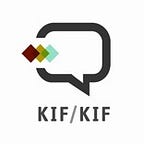Author: Zaid Amali
The current Israeli cycle of violence all over historic Palestine from the river to the sea has revived sentiments that never stopped and were never forgotten. As Palestinians marked the 73rd Nakba or “the catastrophe” on the 15th of May, the horrifying events of the ongoing Nakba continue to unravel, this time visible to the whole world. It wasn’t difficult to understand or explain what happened in 1948, all we have to do is switch on the TV.
It is easy for some, like mainstream media, to portray the recent events as an escalation of “clashes” between Israel and Hamas, or blame Israeli violence solely on Netanyahu and the rise of the rightwing in Israel like elsewhere in the world nowadays. In fact, Israeli violence and the ethnic cleansing of Palestine predate both Hamas and Netanyahu by decades. To do so, is erasing years of Palestinian narrative and trauma, which continues to manifest on a daily basis through killings, arrests, home demolitions, settlement construction, forced expulsions and restrictions of movement and speech, with little world attention and media coverage.
If there is one benefit of studying history, it should be to learn from our past mistakes to ensure that they truly never happen again.
The recent Israeli attacks culminated when it began to bomb Gaza, the largest open-air prison with a population of 2 million people (consisting of refugees mostly) under a suffocating siege since 2007. Gaza is no stranger to heavy bombardment, it went through several major Israeli aggressions in 2008, 2012 and 2014. Every time, more innocent lives, more children, more homes, fall victim to Israel’s indiscriminate bombing of this dense area. Being far from home, I felt helpless as I checked in on my friends who live there. The most heart-wrenching part was when many Gazans, including some of my friends, started posting farewell messages on their social media pages as the bombing intensified near them, not knowing whether they will make it another day or night. One of them said to me one night: “still getting hit with airstrikes as I’m typing this.” All I could do was check on them and ask them for forgiveness. To forgive us because we couldn’t put an end to this tragedy they’re enduring.
As a student of international relations with a passion for contemporary history, I had learned about the atrocities which took place in Europe as the Jews were persecuted for simply being Jewish. However, I never thought that I would witness similar events happening in today’s world, let alone to my people. The ‘Never again’ was happening, in full ‘HD’ this time. Incidents like Kristallnacht were replicated as Israeli lynch mobs were organizing pogroms, marking Palestinian homes to attack and vandalizing their shops. If there is one benefit of studying history, it should be to learn from our past mistakes to ensure that they truly never happen again.
Despite all the pain and agony, the wide public support we witnessed from people all over the world was heartwarming, it provides us with hope that people are watching and listening, that they have not abandoned our struggle and that they are willing to do something to deliver justice to Palestine. After all, my friends in Gaza, the ones paying the heaviest price, expressed their gratitude for such global demonstrations and social media campaigns. Personally, It was not easy to try to bring attention to what is happening in Palestine while constantly being on the edge mentally, helplessly watching the tragic events from afar and not knowing whether I will lose a loved one any second, but again the same Gazan friend told me: “You’re doing more than enough and you’re making a difference”. And that is what keeps me going. We need to keep the momentum going until the injustice ends, until my people are liberated and free.
In 1948, it was my village Al Jauna in the Galilee, today it is Sheikh Jarrah and Silwan in occupied Jerusalem, tomorrow it will be somewhere else. After all, every Israeli city was once Sheikh Jarrah.
Zaid Amali is a third generation refugee from the villageAl-Ja’una, Safad Galilea, Palestine. He is currently finishing his MSc in International Public Policy and Diplomacy at Cork University College, Ireland.
